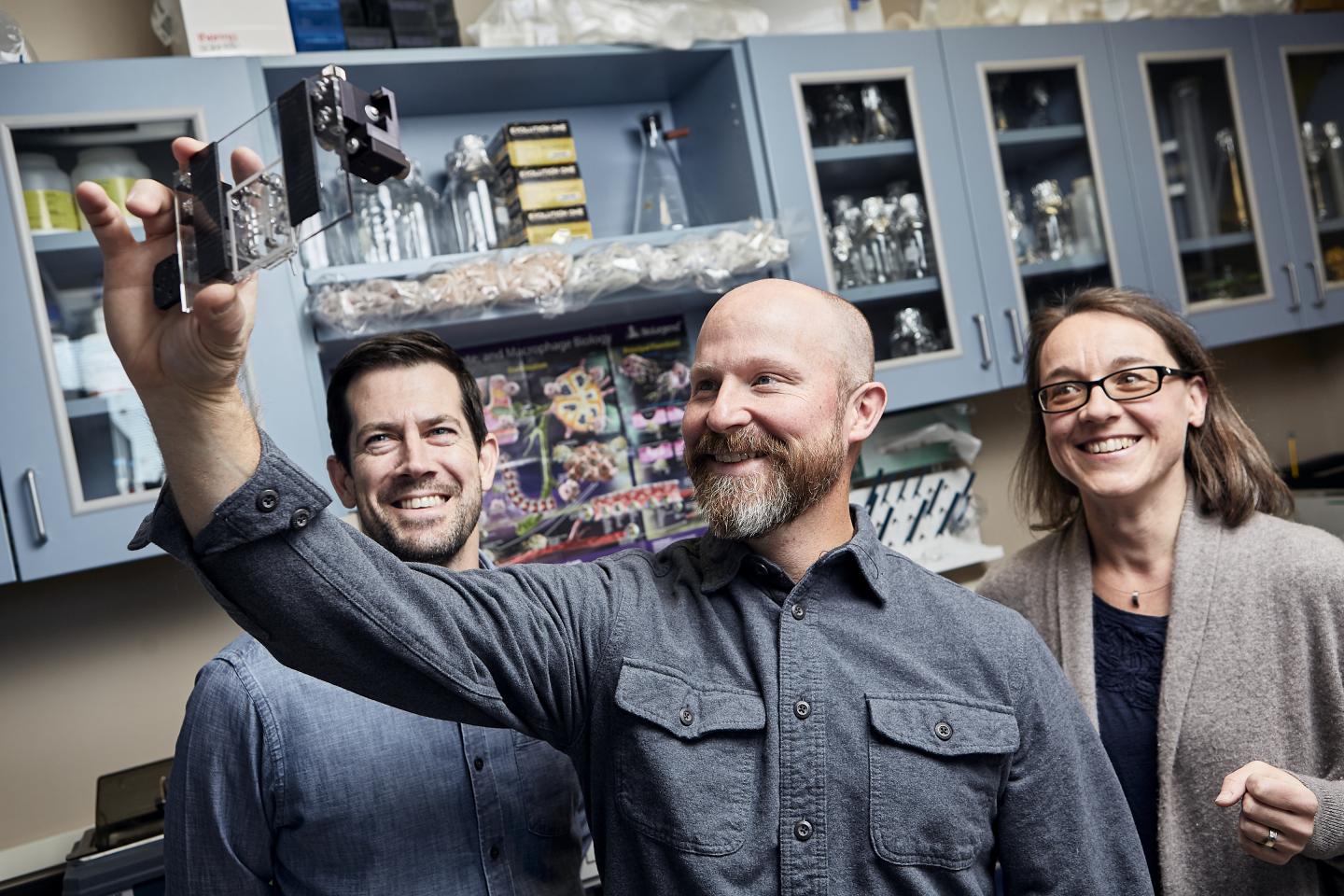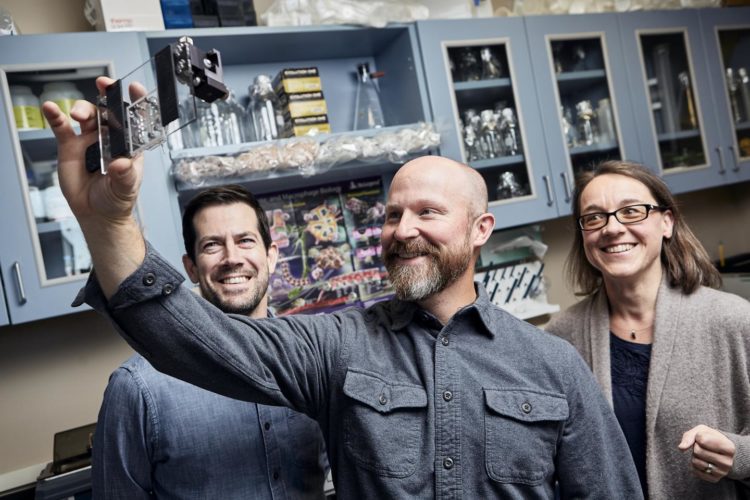
Credit: MSU Photo by Adrian Sanchez-Gonzalez
BOZEMAN — One day, instead of requiring a painful needle injection, vaccinating against a host of formerly fatal diseases could be as simple as swallowing a pill. But getting to that point means first gaining a better understanding of how the immune system works in the complex human gut, according to Montana State University researcher Diane Bimczok.
“There’s a big gap in our understanding,” said Bimczok, assistant professor in the Department of Microbiology and Immunology in MSU’s College of Agriculture and College of Letters and Science. Studies suggest a number of ways that immune cells surrounding the wall of the gastrointestinal tract interact with what’s on the inside — whether harmful bacteria or an ingested vaccine — and trigger the body’s response. But much about the exact mechanisms remains unclear, she said.
That’s why she’s excited to be part of an interdisciplinary MSU research team that won a $3 million grant from the National Institutes of Health in September. The five-year project will explore the capabilities of a new, miniaturized way to simulate and study the gut’s immune system.
“We’re definitely pushing the boundaries with this technology,” said associate professor of microbiology and immunology Seth Walk, who is co-leading the project with Bimczok and James Wilking, assistant professor in the Department of Chemical and Biological Engineering in MSU’s Norm Asbjornson College of Engineering.
The technology is a cellphone-sized “chip” of plexiglass etched with laser-cut channels and chambers less than a millimeter wide. The chambers house spherical “organoids” engineered from human stem cells — “basically mini-guts,” Bimczok explained. The channels, as well as tiny needles inserted into the organoids, allow the researchers to introduce bacteria and immune cells in a precisely controlled environment that mimics the gut’s natural behavior, then observe the results.
The tool was inspired by Walk’s ongoing research on microbial interactions in the human gut. Walk came up with the idea of an engineered organoid system with long-time collaborator Jason Spence of the University of Michigan. Along with MSU’s Blake Wiedenheft, associate professor of microbiology and immunology, they won a grant from the Gates Foundation in 2013 to develop a working prototype. Walk then approached Wilking, a specialist in 3D printing, with the idea of developing a more sophisticated chip that could flow fluids through the organoids.
In September, Wilking and Walk published a paper with MSU chemical engineering graduate student Barkan Sidar in Lab on a Chip, a journal of The Royal Society of Chemistry, showing that the new chip could sustain controlled fluid flow through organoids for days at a time. Adding to the experimental setup for the new project, Bimczok recently developed a way of incorporating immune cells into organoids.
“Nobody has ever done this before,” Wilking said. “And we think there’s a lot of potential for further improving this technology (during the study funded by the new grant).”
Assistant professor of chemical and biological engineering Connie Chang, a partner on the project, will help the team harness new advances in microfluidics, in which the droplet-forming behavior of oil-infused liquid in the etched channels is used to enclose and transport tiny samples. In this case, Chang will help the team capture individual immune cells.
By examining the immune cells under powerful microscopes and analyzing their genetic material, the researchers hope to answer fundamental questions about the gut immune system: Do the immune cells work primarily by changing shape to penetrate the organ lining and probe the gut’s contents? Are the biochemical cues secreted by the organ wall mainly what trigger the immune cells to turn on certain genes?
“This is a true collaboration between engineering and biology,” Chang said. “Some of the most interesting problems in engineering right now are at the interface with human health.”
According to microbiology and immunology department head and MUS Regents Professor Mark Jutila, the fifth member of the team, the project is part of a bigger push by the National Institutes of Health and others to find experimental tools that can more accurately predict how the human body will respond to new therapies. Traditionally, treatments are tested on animals and then cultures of human cells that are not as life-like as organoids. “I think this could be a huge advance for the field,” he said.
That would open up new possibilities for developing and testing medicines that specifically target the complex immune system in the human gut. “If we understand this system at a fine level, we can design better oral vaccines,” Walk said. “There’s a lot of potential.”
###
Media Contact
Seth Walk
[email protected]
406-994-2649
Original Source
https:/





